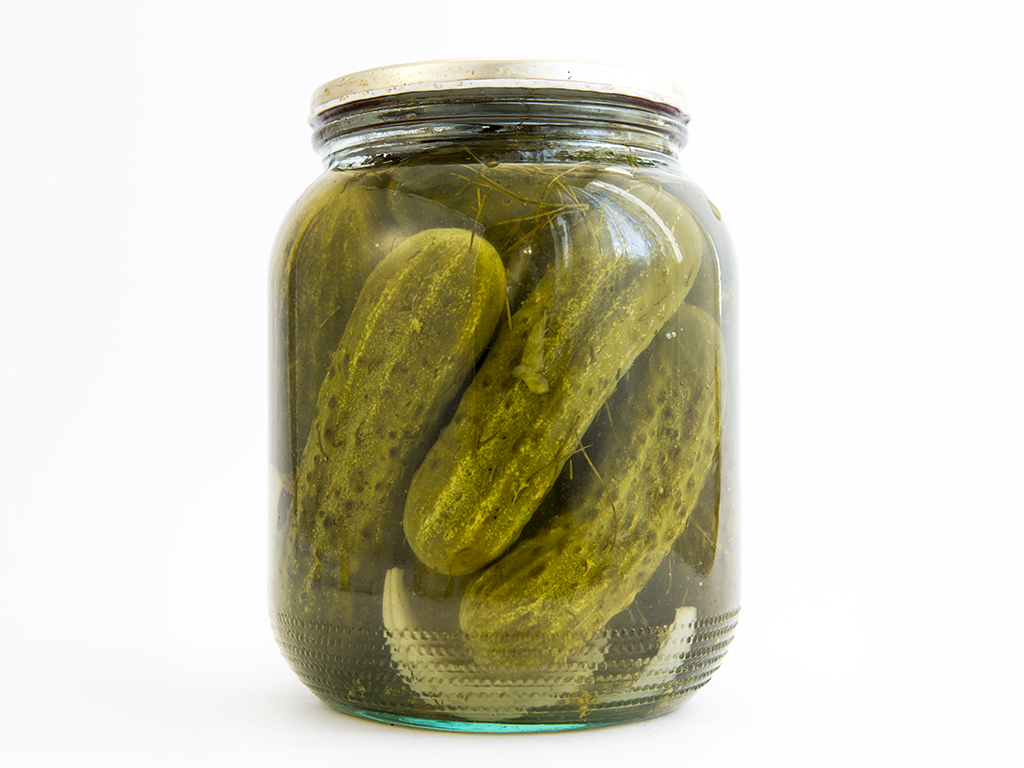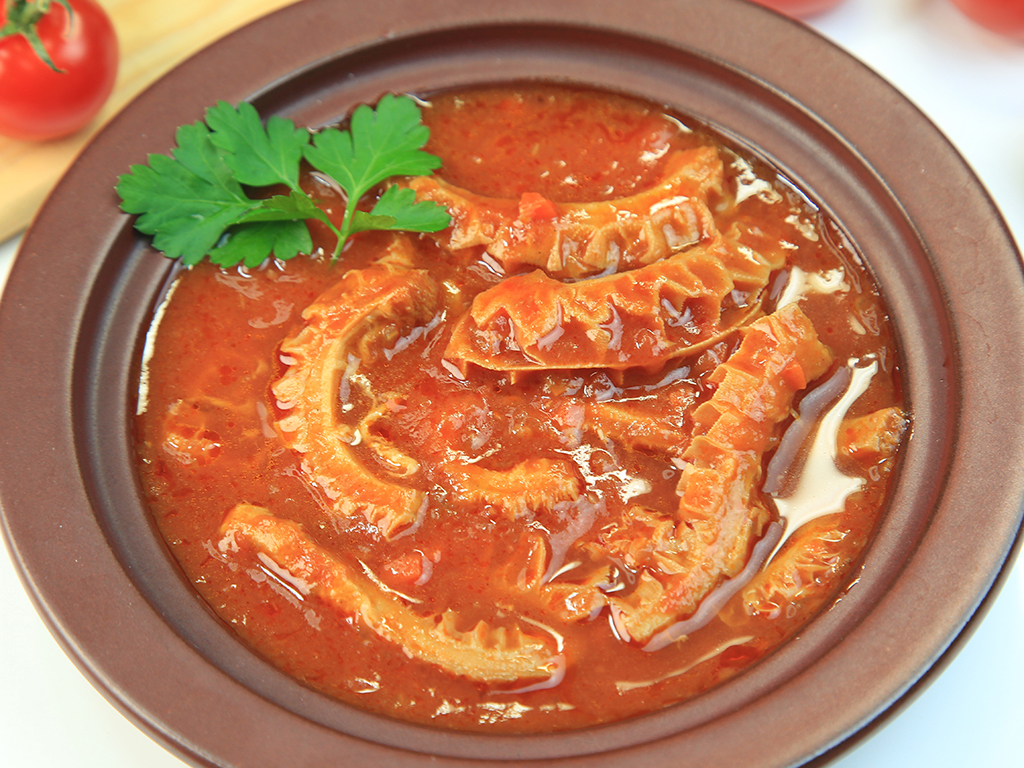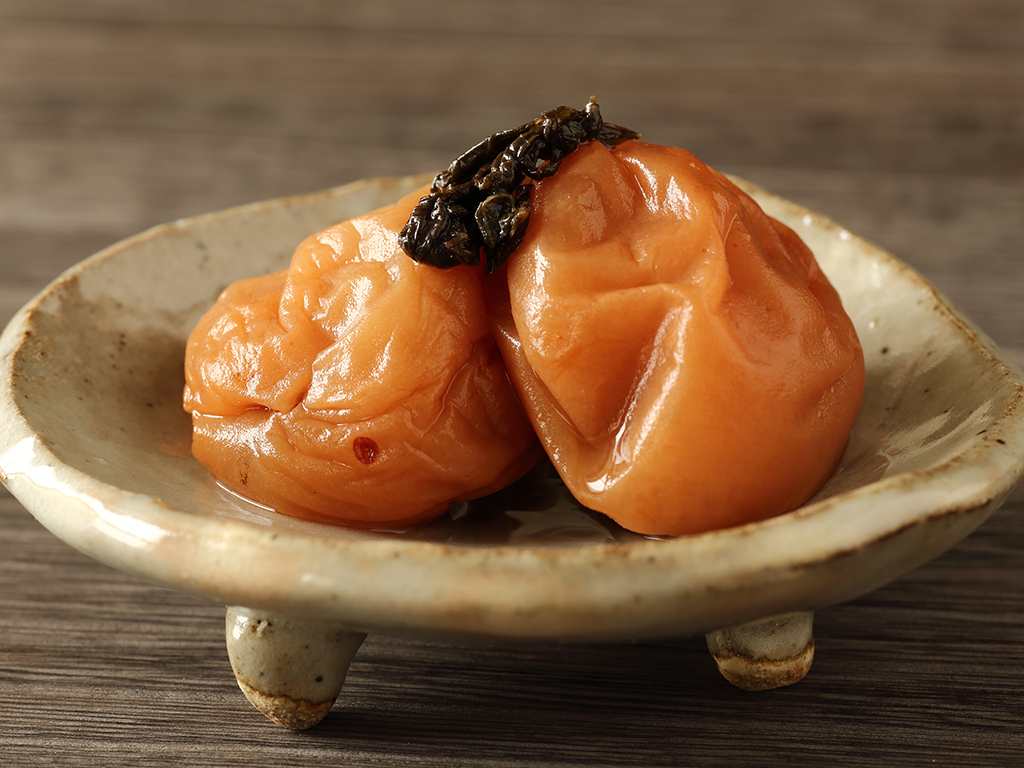A hangover is nature’s (and science’s) way of making you pay for overindulging the night before. It’s characterized by symptoms including headache, nausea, fatigue, decrease in cognitive function and tremulousness — otherwise known as the shakes — and usually results in a day spent on the couch.

Yet, despite knowing this, many of us continue to drink to the point where a hangover is all but guaranteed. For this reason, a seemingly endless number of purported cures have popped up around the world, laden with dubious evidence-based promises of delivering relief.
READ MORE: St. Patrick’s Day: Hangover cures that actually work
While some do have a shred of merit, says consulting dietitian Andrea Miller, the only real cure for a hangover is “hydration, rest, and a breakfast combining high-carbohydrate and low-fat foods.”
In the spirit of demystifying some of the world’s most exotic hangover cures, we examined the claims behind qualmy fare like Mexican tripe stew and Polish pickle juice to determine their efficacy.
Full English breakfast
In the U.K., a classic fry-up consisting of eggs, bacon, sausage, beans, black pudding, tomatoes and mushrooms (even the vegetables are fried) is the day-after go-to to shake off the boozy cobwebs. Aside from being indulgently delicious, the dish is credited with soaking up the excess alcohol in your system with its high grease content.
But that’s a fallacy, Miller says.
“Foods that are high in fat are slow to digest, so they hang around in the gut for a while,” she says. “If you’re already feeling a little nauseous, a high-fat meal will be counterintuitive and could make you feel worse.”
Her suggestion is a breakfast including whole grains like toast and oatmeal or something like fruit and yogurt, which is lower in fat and easier to digest.
Katerfrühstück
This German delicacy is a popular hangover cure that combines marinated herring rollmops with pickled gherkins and other sour-tasting add-ons. It claims to restore the body’s electrolytes and alleviate hypoglycemia, which is the cause of the wobbly sensation that follows a night of heavy drinking.

Get weekly health news
“I like the idea of restoring electrolytes, because they do get messed up with lots of alcohol, but it all depends on what the herring is marinated in,” Miller says. “If it’s done in tomato or lemon juice, which have potassium and sodium, that could be helpful.”
“But if you don’t already like herring, I’m not sure you’ll start to like it when you have a hangover. It might contribute to more nausea.”
Pickle juice
In Poland, pickle juice and its combination of water, vinegar and sodium, is lauded for its rehydrating properties. People also believe that the vitamin A, potassium and manganese in the liquid is beneficial to the body.
“The sodium and potassium in the pickle juice will rehydrate and restore electrolytes, but who wants to wake up and drink pickle juice?” Miller questions.
She likens it to adding insult to injury, and doubts that it’ll make you feel any better.
Menudo
What would you say to a steaming bowl of tripe and red chili pepper stew after a night of heavy drinking? In Mexico, they say gracias. That’s because they credit the dish with stimulating their senses and clearing their head.
Miller doesn’t see how it would help, though.
“If you want to get a runny nose from eating something hot and spicy, and that effect makes you feel like you’re doing something beneficial to your body, then that’s fine,” she says. “But it won’t cure your hangover; it’ll just clear your head a bit.”
The main goal in quelling a hangover is to rehydrate and prevent the hypoglycemia that comes from combining minimal food with excess alcohol, and seeing as this dish is neither hydrating nor high in potassium, it won’t accomplish much.
Oregano tea
Oregano tea, which can be made by steeping three teaspoons of fresh leaves or one teaspoon of dried leaves in one cup of hot water, is a popular hangover helper in Ecuador, where it’s lauded for settling a queasy stomach.
“There’s some evidence around oregano oil’s ability to alleviate the effects of head colds and nausea, so this has some benefit,” Miller says. “If you’re feeling nauseous, it could help combat that, plus it provides fluid to help rehydrate your body.”
Added tip: By bruising or cutting fresh leaves before steeping, you’ll release more of its beneficial compounds.
Umeboshi
The Japanese credit umeboshi, which are pickled, sour plums, with a host of benefits, including aiding in digestion, boosting liver function and preventing nausea — all of which will definitely help with a hangover.
But Miller is skeptical.
“I wouldn’t rely on this,” she says. “There’s no one food that will simultaneously help with digestion and improve liver function.”
She says it might help calm an unsettled stomach, and the sodium from the pickling process as well as the fruit’s natural potassium could help replenish lost electrolytes, but it’s highly impractical as a cure.
“You’re not going to find umeboshi at the local supermarket,” she says.
Congee
This traditional Chinese dish that resembles rice pudding can be served plain, or combined with meat or fish, and is commonly prescribed to the sick.
“I wouldn’t have thought of this as hydrating, but it has a reasonable amount of liquid in it, so it would be very good for a hangover,” Miller says. “If it’s served plain and can be sweetened, it can also improve your blood sugar. Plus, it’s a comfort food, so it’ll inherently make you feel better.”

















Comments